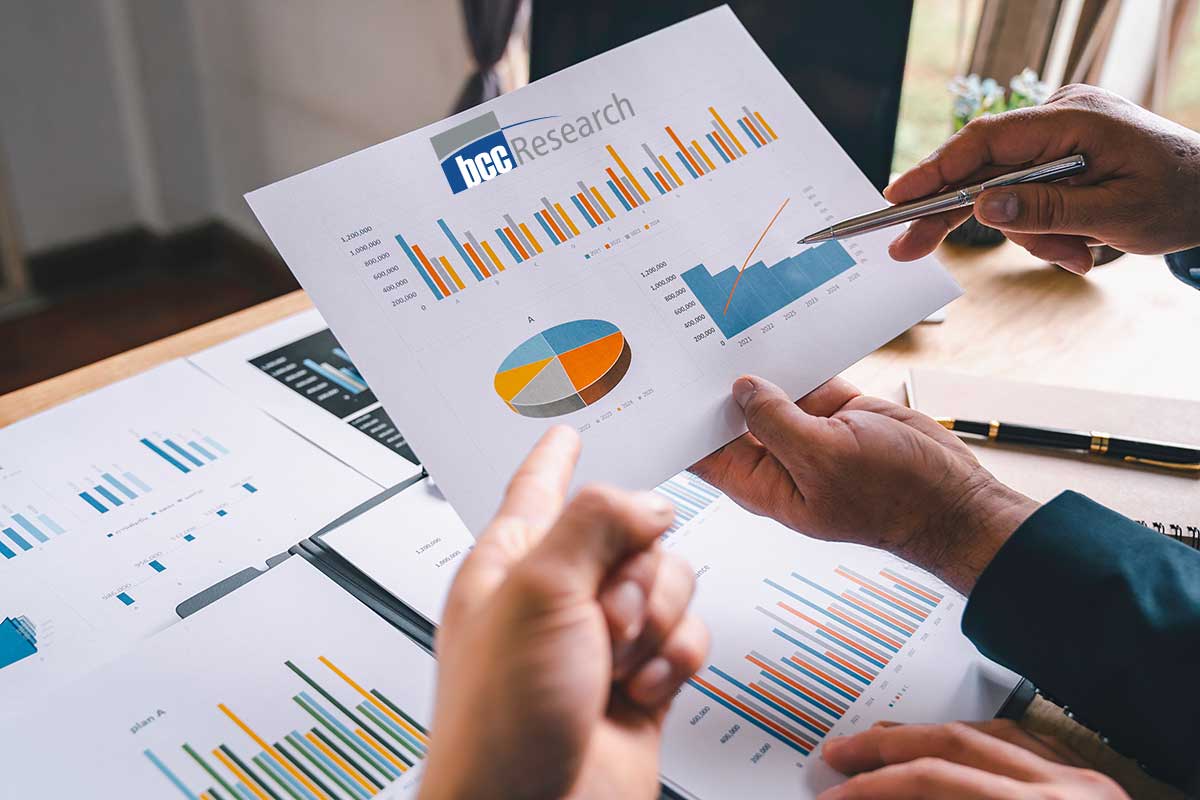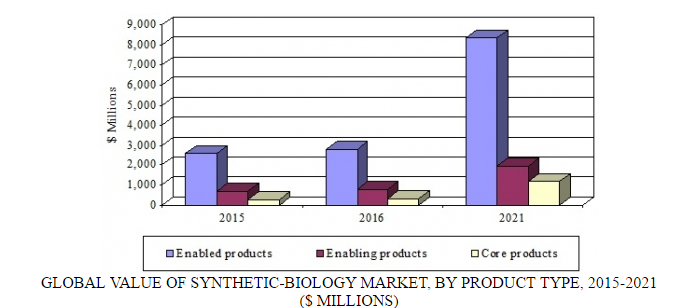
May 10, 2017
Blog Life Sciences Synthetic Biology Aids Terrestrial and Extraterrestrial Agriculture
Synthetic biology, which combines the principles of computer science, engineering, and biology, has become established as an important discipline in the life sciences industry. As put by USC’s Leonardo Morsut: “Synthetic biology is…trying to bring the engineering approach of building things into biology.” In addition to its enormous potential for future applications, synthetic biology has significant near-term commercial opportunities. The list of new products and applications is growing. Applications include specialty chemicals, enzymes, synthetic genes and cells, as well as pharmaceuticals, agricultural seeds, vaccines, biofuels, and chassis microorganisms.
Continuing advances in enabling technologies such as DNA synthesis and sequencing, specialty media for biofactories, genome editing, and bioinformatics, as well as the need for more efficient microbial production processes, are driving growth in the global synthetic biology market. According to BCC Research, developments in these multidisciplinary fields promise to advance the synthetic biology industry and to create unique market opportunities.
The synthetic biology industry consists of three main sets of technologies and products: enabling (which are driving development of the industry), core, and enabled. The core segment of the synthetic biology market contains the key tools by which cellular factories and systems produce enabled products. The products enabled by synthetic biology tools have large downstream market potential. For example, synthetic biology has simplified the commercialization pathway for genome-edited crops in the agricultural industry and has enhanced the availability, quality control, and testing of novel synthetic genes in the drug development industry.
The global synthetic biology market, which reached nearly $3.9 billion in 2016, should total $11.4 billion by 2021, growing at a five-year compound annual growth rate (CAGR) of 24.0%. Enabled products, the largest market segment, is expected to exceed $8.3 billion in 2021, up from $2.8 billion in 2016, reflecting a five-year CAGR of 24.4%. Core products, valued at $311.5 million in 2016, is forecast to attain $1.1 billion in 2021 at a five-year CAGR of 30.0%.
GLOBAL VALUE OF SYNTHETIC BIOLOGY MARKET BY PRODUCT TYPE, 2015-2021

Growth in the enabled products segment is fueled by a trend toward higher-value specialty products, such as performance chemicals, flavors and fragrances, therapeutics, and novel crop traits. The core products segment is growing very fast due to increased demand for synthetic genes, the rise of synthetic biology foundries, and efforts by organizations such as the BioBricks Foundation, DIYbio, and SynBERC to develop and apply DNA constructs. The enabling technologies segment continues to innovate, e.g., in the fields of gene synthesis and genome editing. Such innovations support the development of core and enabled products.
“New genome-editing technologies, including cluttered regularly interspaced short palindromic repeats (CRISPR) and transcription activator-like effector nuclease (TALEN) systems, are having a significant impact on the industry,” says BCC Research analyst John Bergin. “The agricultural industry is projected to be a high user of synthetic biology products. In particular, genome editing is forecast to become a key tool for the creation of novel seeds due to its ease of use and non–genetically-modified organism (GMO) designation by regulatory authorities.”
According to proprietary work by BCC Research, there is rising demand for biotech seeds that can deliver higher agricultural yields and better resistance to plant stresses and threats. World population growth, coupled with rising incomes, is leading to increasing consumption of higher-quality foods, including meat. “This, in turn, creates higher consumption of feed crops, including maize, soy, and wheat,” notes Kevin Fitzgerald, BCC Research editorial director. “At the same time, the acreage of arable land available for producing crops is under pressure from a range of forces including the growing population, urbanization, and global warming.”
As a result of these forces, the agricultural industry must increase its productivity and crop yields. Strategic biotechnology tools, such as synthetic biology, help meet these demands. Such tools enable the development of better plant breeding programs, as well as novel plant traits, thus enhancing downstream agricultural markets. And, it seems, extraterrestrial agriculture may also benefit from synthetic biology.
A SYNTHETIC BIOLOGY ARCHITECHTURE TO DETOXIFY AND ENRICH MARS SOIL FOR AGRICULTURE
NASA announced funding for 22 projects that could help its plans to send humans to Mars in the 2030s. Adam Arkin, a scientist at the University of California, Berkeley, has been funded to create an organism that could make Martian soil farmable. “Although the theoretical case for space biological engineering is convincing…the functioning of these biological technologies has yet to be proven in a space-like environment,” Arkin wrote. “We will study such functioning for a synthetic biology architecture that can detoxify the perchlorate in Mars soil and also enrich it with ammonia.”
Arkin’s work will clarify the feasibility of using the proposed biotechnology to support manned Mars missions. The two system processes of perchlorate reduction and nitrogen fixation individually exist in biology and, when combined, will potentiate soil-based agriculture (by plants or microbes) on Mars. The concept architecture is a single-model organism that will eventually have both systems, which now exist separately in two strains of the same species (Pseudomonas).
The advantages of the proposed architecture compared with current approaches (such as washing out perchlorate to cleanse soil or using hydroponics to grow plants) include a low initialization mass of microbial cells, on-demand cell growth with in situ resources, and the elimination of toxic wastewater. Broader impacts include Earth-based bioremediation (e.g., land cleanup near oil wells and toxic spills) and non-arable land enrichment to improve food production to address famines, drought, larger populations, and so on.
BCC Research’s study, Synthetic Biology: Global Markets, characterizes and quantifies the market potential for synthetic biology products, by type and by end use. The report examines synthetic biology applications, industry structure, competitive dynamics, and key strategic alliances and acquisitions. Global market drivers and trends, with projections of CAGRs through 2021, are provided.
In today’s fast-paced biomedical world, researchers and pharmaceutical companies...

Radiopharmaceuticals represent a cutting-edge frontier in modern medicine, offer...

Implantable Remote Patient Monitoring (IRPM) devices are revolutionizing healthc...

We are your trusted research partner, providing actionable insights and custom consulting across life sciences, advanced materials, and technology. Allow BCC Research to nurture your smartest business decisions today, tomorrow, and beyond.
Contact UsBCC Research provides objective, unbiased measurement and assessment of market opportunities with detailed market research reports. Our experienced industry analysts assess growth opportunities, market sizing, technologies, applications, supply chains and companies with the singular goal of helping you make informed business decisions, free of noise and hype.